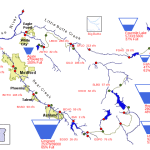If We Don’t Act Now, Fascism Will Be on Our Doorstep, Says Yale Historian – AlterNet
If We Don’t Act Now, Fascism Will Be on Our Doorstep, Says Yale Historian

Photo Credit: www.facebook.com/WhiteHouse
How close is President Donald Trump to following the path blazed by last century’s tyrants? Could American democracy be replaced with totalitarian rule? There’s enough resemblance that Yale historian Timothy Snyder, who studies fascist and communist regime change and totalitarian rule, has written a book warning about the threat and offering lessons for resistance and survival. The author of On Tyranny: Twenty Lessons from the Twentieth Century talked to AlterNet’s Steven Rosenfeld.
Steven Rosenfeld: Three weeks ago, you said that the country has perhaps a year ‘to defend American democracy.’ You said what happens in the next few weeks is crucial. Are you more concerned than ever that our political culture and institutions are evolving toward fascism, resembling key aspects of the early 20th-century European regimes you’ve studied?
Timothy Snyder: Let me answer you in three parts. The first thing is that the 20 lessons that I wrote, I wrote on November 15th. The book, On Tyranny, was done by Christmas. Which means if people read it now, and people are reading it, and it’s describing the world they are in, that means I’ve successfully made predictions based on history. We’re going to talk about what is going to come, but I want to point out that timeline—it was basically completely blind. But the book does describe what is going on now.
The year figure is there because we have to recognize that things move fast. Nazi Germany took about a year. Hungary took about two and a half years. Poland got rid of the top-level judiciary within a year. It’s a rough historical guess, but the point is because there is an outside limit, you therefore have to act now. You have to get started early. It’s just very practical advice. It’s the meta-advice of the past: That things slip out of reach for you, psychologically very quickly, and then legally almost as quickly. It’s hard for people to act when they feel other people won’t act. It’s hard for people to act when they feel like they have to break the law to do so. So it is important to get out in front before people face those psychological and legal barriers.
Am I more worried now? I realize that was your question. No, I’m exactly as worried as I was before, in November. I think that the people who inhabit the White House inhabit a different ideological world in which they would like for the United States not to be the constitutional system that it now is. I was concerned about that in November. I’m concerned about it now. Nothing that has happened since has changed the way I see things.
SR: Let’s talk about how this evolution takes place. You’ve written about how ‘post-truth is pre-fascism.’ You talk about leaders ignoring facts, law and history. How far along this progression are we? I’m wondering where you might see things going next.
TS: That’s tough because what history does is give you a whole bunch of cases where democratic republics become authoritarian regimes; sometimes fascist regimes, sometimes communist regimes. It doesn’t give you one storyline: A, B, C, D. It gives you a bunch of clusters of A, and a bunch of clusters of C. But factuality is really important and more important than people realize, because it’s the substructure of regime change.
We think about democracy, and that’s the word that Americans love to use, democracy, and that’s how we characterize our system. But if democracy just means going to vote, it’s pretty meaningless. Russia has democracy in that sense. Most authoritarian regimes have democracy in that sense. Nazi Germany had democracy in that sense, even after the system had fundamentally changed.
Democracy only has substance if there’s the rule of law. That is, if people believe that the votes are going to be counted and they are counted. If they believe that there’s a judiciary out there that will make sense of things if there’s some challenge. If there isn’t rule of law, people will be afraid to vote the way they want to vote. They’ll vote for their own safety as opposed to their convictions. So the thing we call democracy depends on the rule of law. And the things we call the rule of law depends upon trust. Law functions 99 percent of the time automatically. It functions because we think it’s out there. And that, in turn, depends on the sense of truth. So there’s a mechanism here. You can get right to heart of the matter if you can convince people that there is no truth. Which is why the stuff that we characterize as post-modern and might dismiss is actually really, really essential.
The second thing about ‘post-truth is pre-fascism’ is I’m trying to get people’s attention, because that is actually how fascism works. Fascism says, disregard the evidence of your senses, disregard observation, embolden deeds that can’t be proven, don’t have faith in god but have faith in leaders, take part in collective myth of an organic national unity, and so forth. Fascism was precisely about setting the whole Enlightenment aside and then selling what sort of myths emerged. Now those [national] myths are pretty unpredictable, and contingent on different nations and different leaders and so on, but to just set facts aside is actually the fastest catalyst. So that part concerns me a lot.
Where we’re going? The classic thing to watch out for is the shift from one governing strategy to another. In the U.S. system, the typical governing strategy is you more or less have to follow your constituents with legislation because of the election cycle. That’s one pulse of politics. The other pulse of politics is emergency. There’s some kind of terrorist attack and then the leader tries to suspend basic constitutional rights. And then we get on a different rhythm, where the rhythm is not one electoral cycle to the next but one emergency to the next. That’s how regime changes take place. It’s a classic way since the Reichstag fire [when the Nazis burned their nation’s capitol building and blamed communist arsonists].
So in terms of what might happen next, or what people could look out for, some kind of event that the government claims is a terrorist incident, would be something to be prepared for. That’s why it’s one of the lessons in the book.
SR: You have talked before about that kind of emergency justification—and even with Vladimir Putin in Russia. Is that what you think would happen here? Because with the exception of the judiciary, a lot of American institutions, like Congress, are not really resisting. They’re going along.
TS: They’re going along… but my own intuition would be the emergency situation arises because going along isn’t going to be enough. Paradoxically, Congress is going along and is going to pass a bunch of stuff, which is not actually very popular. Right? It’s not going to be so popular to have millions of people lose health insurance, which is what’s going to happen. The ironic things about the Republican Congress is now it has the ability to do everything it wants to do, but none of what it wants to do is that popular. Except with the few big lobbies, of course. The freedom the Republicans have is the freedom to impose their agenda on down.
The same thing goes with Mr. Trump. The things that he might do that some people would like, like building a wall or driving all the immigrants out, those things are going to be difficult or slow. In the case of the wall, I personally don’t believe it will ever happen. It’s going to be very slow. So my suspicion is that it is much easier to have a dramatic negative event, than have a dramatic positive event. That is one of the reasons I am concerned about the Reichstag fire scenario. The other reason is that we are being mentally prepared for it by all the talk about terrorism and by the Muslim ban. Very often when leaders repeat things over and over they are preparing you for when that meme actually emerges in reality.






